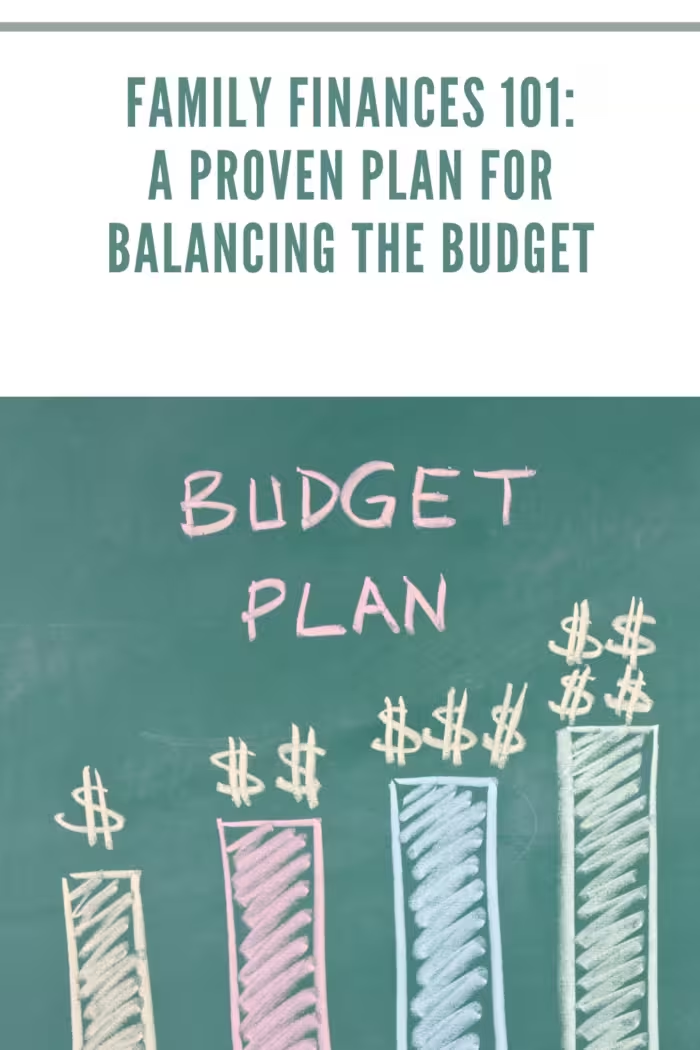Parenthood comes with its own unique set of joys and challenges, and navigating the financial aspect properly is often a significant concern for many families.
If you’ve experienced the anxiety of an unexpected expense and wondered where all your money went at the end of the month, you’re not alone. We are here to help you.
This guide leads you through a thorough, step-by-step approach to developing a budget tailored to your family’s requirements, guaranteeing financial well-being and longevity.

Balancing the Budget: A Parent’s Guide to Managing Household Finances
Why Should You Make a Family Budget?
Before diving into numbers, understand why you need a family budget.
Budgeting can be tedious, but it is an essential roadmap for every family aiming for financial balance. It doesn’t just keep your spending under control; it allows you to comfortably cover all expenses, save for the future, and prepare for the unexpected.
A budget serves as a visual representation of where your money comes from and where it goes. Imagine that your budget is like your financial GPS, guiding your spending decisions to ensure you reach your goals efficiently.
Now that we’ve explained the importance of a family budget, we’ll help you create one for your family. Let’s get started!
List Family Monthly Expenses
Put your monthly income on paper or a spreadsheet without income tax. For example, in Texas, you’ll generally focus on federal income tax, so you can calculate “Texas take-home pay” and, as a result, get your net salary. You can use this calculator for other US states as well.
After you get the net amount, proceed to outline your expenses.
Mapping out all of your monthly expenditures is crucial for building a comprehensive family budget. From these numbers, you can understand your family’s spending habits, make necessary adjustments, and ensure you’re living within your means.
When calculating a monthly budget, you should:
- Divide the expenses into groups: By grouping expenses like housing, transportation, and food, you will make it easier to identify areas of heavy spending. This way, you will be able to cut back on expenses if needed.
- Be detailed and honest: Don’t skip small expenses. For example, while occasional dining out can be a treat, making it a regular occurrence might contribute significantly to unnecessary expenses, especially when there are more cost-effective alternatives available.
- Take care of discretionary expenses: These are optional expenses and can include recreation and entertainment of family members. If membership fees are paid monthly, include them in your budget.
After you make a list of your monthly expenses, subtract your total expenses from your total income. If you get a positive result, you’re spending less than you earned, and that is a great position to be in.

Include Seasonal Expenses
When you’re done with your monthly budget, it’s time to include your annual seasonal expenses, which refer to the whole year. A significant amount of your money is likely to go to one-off expenses that arise over the year.
Those costs may include holiday presents, birthday gifts, summer vacation costs, and back-to-school spending. And those are just some of the seasonal expenses.
The other ones can include heating your home in cold-weather months or a higher water bill for irrigating your lawn in the summer.
Study your outflows during the past year or two and estimate the impact of seasonal costs, then build those costs into your budget. With a proper monthly budget and seasonal budget, you will get a picture of how much your family spends on average in one year.
Prepare for the Unexpected
Life, by nature, is full of surprises and unexpected situations. While some are pleasant, others can cause financial problems.
Unforeseen costs can imply medical emergencies, sudden home repairs, unplanned trips, or job losses. Some are minor inconveniences, while others can be financially devastating if you are not prepared for them. So, how will you prepare for unexpected costs?
By creating emergency funds. This should be a separate savings pool meant only to cover unforeseen costs.
Another way to prevent such costs is to invest in various health and home insurance policies.
Health insurance can reduce medical expenses, while homeowner’s or renter’s insurance can cover unexpected home-related costs.
Also, income protection or life insurance can provide financial support in case of a job loss or a family member’s passing.
Separate What You Want from What You Need
“You Can’t Always Get What You Want,” said one of the famous Rolling Stones’ hits, which touches on an issue many of us face all the time.
For many people, knowing where to draw the line when it comes to money can mean the difference between creating a successful budget and going broke. How do you pull that line?
Most costs are non-negotiable expenditures. You surely must pay for shelter, which demands payment of rent or a mortgage, and food, which results in grocery bills. Those are categories that leave no room for choice. For the rest, you must think about what you can afford.
For example, you want to take a vacation in Thailand rather than spend a week driving to state parks near your home. Both places can offer you satisfying and relaxing places to spend your time, but the costs are radically different.
Knowing the difference between wants and needs is key to a successful family budget. So, calculate expenses carefully, show restraint, and always make sure your budget balances.

Final Words
Crafting a thorough family budget may appear daunting at first, but once in place, it transforms into a valuable asset. This tool not only brings clarity and command to your financial circumstances but also sets the foundation for a future that is secure and comfortable.
It’s crucial to understand that budgeting isn’t about limitations; instead, it focuses on making informed and empowered financial decisions. Embrace the process with enthusiasm—here’s to successful budgeting!
